Pablo Alvarez
Library Blogs
Showing 1 - 10 of 10 items
Results
for Date: October 2019
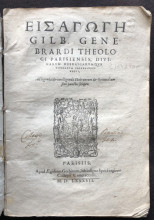
I recently came across this sixteenth-century introductory manual designed to teach Christian biblical scholars how to read and understand works in Hebrew and other Oriental languages without punctuation and stress marks. But what makes our copy remarkable is that the names of well-known Protestant scholars, and other infidels, have been carefully crossed out, that is, expurgated, following the Inquisition's recommendations to censor authors considered heretical according to the teachings of the Church of Rome.

We are pleased to announce that the next event in the “Deep Dive” series will be held on November 21-22, 2019, with U-M Professor Yun Zhou (Department of Sociology). The topic will be using mixed-methods to research gendered work-family conflict and China’s recent ending of the one-child policy.
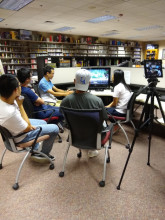
It's that time again to register for Winter classes. Do you find yourself wondering how to work your love of video games into your course selections? Here are some courses that might help you do just that.
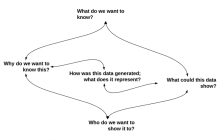
Chances are the work processes you already have in place are generating data that you could be using to learn more about those processes. In this second blog post, the author continues to highlight steps for working with data that is generated by your daily tasks.
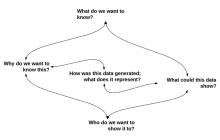
Chances are the work processes you already have in place are generating data that you could be using to learn more about those processes. In two blog posts, the author shares some steps for working with data that is generated by your daily tasks.
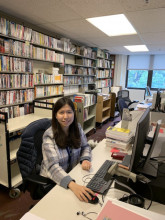
Thanks to a generous program of the Korea Foundation, Asia Library is able to welcome a full-time intern from Korea to its staff every year. These bright, motivated young people learn many facets of library work while here, making this a win-win situation for both parties.

The Winter Ghosts is a beautifully-written novel about a young man whose brother was killed in World War I, who travels in the French Pyrenees in the hope that he will heal his emotional wounds. Stranded in a blizzard, he finds a remote village and meets a young woman who tells him a horrific story of the massacre of a Christian sect in the Middle Ages. But there is more going on than meets the eye. Time travel, ghosts, or the protagonist's imagination? It is up to the reader to decide.

It’s the start of a new school year. Everyone is getting settled into their new routines. I for one have spent most of the past month eating out every day. In an effort to curb this bad habit I decided to check out some cookbooks and try to improve my skills in the kitchen. Now I’m sharing what I found with you all in hopes to inspire more people to become amateur chefs with me.

Feel the fright this Halloween by checking out Undergraduate Library books on horror and film! The display of books in the Shapiro Lobby this October is focused on scary cinema.

For the past three years the Text Creation Unit, a small group within the Digital Content & Collections department of LIT, has been busy revising one of the University's oldest and most famous products and projects, the Middle English Dictionary. This post will not address the now 90-year history of the project, nor the technical or design aspects of our new interface, nor even the problems attached to sustaining a project like this over nearly a century. In fact, this post will seem a little roundabout, but trust me, it will eventually end up at the work actually being carried out, and at the sort of thinking, and the sort of crazy people, that go into it.